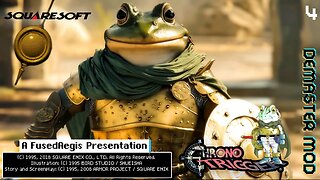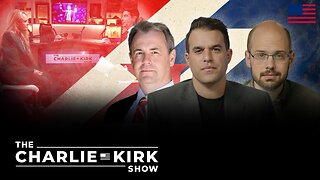Premium Only Content

APEC 9/2: Quantum Gravitons, Interstellar Propulsion & GEM Theory
Mark Calvo will present the CBU Quantum Graviton Paper, Tami Pudina will discuss Interstellar Propulsion, and John Brandenburg will discuss GEM Theory & applications for advanced space propulsion. We’ll also be hearing updates from our lab partners and finishing off the event with an open discussion by conference attendees!
12:00pm PT – Mark Calvo – CBU Quantum Graviton Paper
What causes gravity? Sir Isaac Newton discovered and expressed gravity in his equations as a force that is instantaneous and of infinite range, while Einstein redefined it as a force resulting from the curvature of space-time limited by the speed of light. Since then, modern physicists search for the “graviton” mass less spin-2 particle has been fruitless. Could they be looking for a particle that does not exist? Mark D. Calvo will present a detailed model describing the graviton as shadow force.
1:00pm PT – Tami Pudina – Interstellar Propulsion
Various propulsion methods are being developed in an attempt to make interstellar travel feasible, such as nuclear propulsion, ionic propulsion, photonic propulsion, and the theoretical Alcubierre drive. In this presentation, Tami examines these propulsion methods and equations and includes the research that supports them, with the goal of introducing concepts to laymen in order to further insight and eventually making humans an interplanetary species and interstellar travel a reality.
2:00pm PT – John Brandenburg – GEM Theory
Physicist Dr. John Brandenburg will be discussing the GEM (Gravity Electro-Magnetism) Theory, which is a unified field theory that brings Gravity, Magnetism, Electricity and other forces into a controllable force that can power all sorts of aircraft, spacecraft and other vehicles – and could lead to a new type of electric spacecraft that will make rockets obsolete. The GEM theory in basic form gives a physical EM analogue of Gravity fields and invokes a Kaluza-Klein 5th dimension of a subatomic size, but much larger than the Planck Length. It yields a massless vacuum, and a highly accurate formula for G the Newton Gravitation constant.
3:00pm PT – Lab Partners – Experimental Research Updates
Learn about hands-on engineering & technical research on advanced propulsion experiments by our lab partners. Mark Sokol & the Falcon Space team will describe ongoing experiments with NMR / EPR gravity-modification, Michael Perrone will describe his ongoing work with the LK-99 Superconductor, and we anticipate updates from Andrew Aurigema and our other lab partners.
4:00pm PT – Open Discussion
Conference Q&A and general discussion will take place during this APEC webinar’s open discussion session. This is a regular part of each conference and allows attendees to communicate, collaborate & update each other on research, trends, and news items important to the community.
-
 1:17:04
1:17:04
DeVory Darkins
5 hours agoPelosi SURRENDERS announces retirement and Bernie Sanders makes stunning admission
92.3K103 -
 DVR
DVR
StoneMountain64
4 hours agoArc Raiders is actually INCREDIBLE
49.8K2 -
 LIVE
LIVE
FusedAegisTV
6 hours agoFUSEDAEGIS PLAYS THE GREATEST JRPG EVER MADE ⌛► CHRONO TRIGGER (1995) Part 4
87 watching -
 1:57:50
1:57:50
The Charlie Kirk Show
5 hours agoErika's Interview + Auburn Aftermath | Schlichter, Lomez | 11.6.2025
101K19 -
 LIVE
LIVE
ZWOGs
5 hours ago🔴LIVE IN 1440p! - ARC RAIDERS w/ @SilverFox & @svgames! - Come Hang Out!
93 watching -
 LIVE
LIVE
The Rabble Wrangler
15 hours agoBattlefield with The Best in the West
47 watching -
 1:02:01
1:02:01
Sean Unpaved
5 hours agoTragedy Strikes: Kneeland's Remembrance, Spo's Inferno, CFB HC Rumors, & TNF Raiders-Broncos' Odds
67.9K -
 LIVE
LIVE
BigTallRedneck
8 hours ago3K 3XL TAKEDOWN - PGA 2K25/REDSEC/ARC RAIDERS
14 watching -
 LIVE
LIVE
GritsGG
6 hours agoSolos! #1 Most Warzone Wins 3920+!
24 watching -
 1:01:46
1:01:46
Timcast
5 hours agoBannon RIPS GOP For Dismissing Zohran, "This Is Very Serious"
152K98